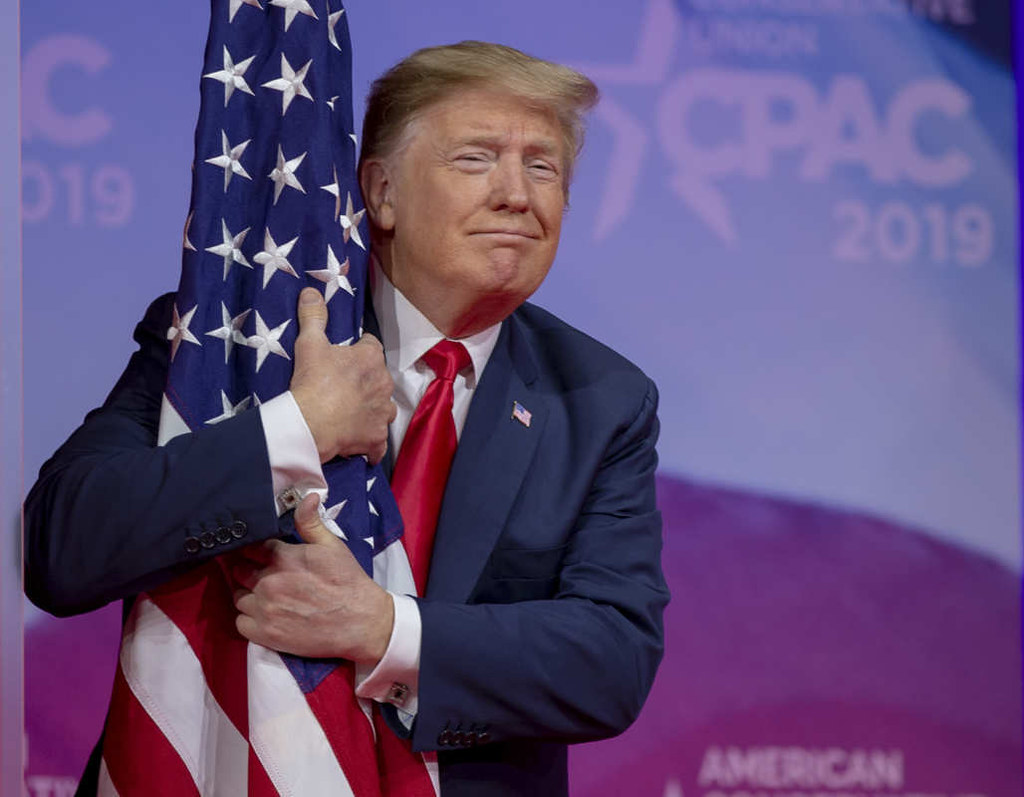Is It Wrong to Be a Nationalist?
When President Trump declared himself a “nationalist” last autumn, some wondered if that was good or bad for the country. One writer pointed out that “for many Americans, mention of the word summons up visions of Hitler and Nazism.” Michael McFaul, the ambassador to Russia during the Obama administration, tweeted: “Does Trump know the historical baggage associated with this word, or is he ignorant?” Shortly after Trump’s declaration, President Macron of France warned against “chaos and death,” calling nationalism “the betrayal of patriotism.”
The largely negative reaction to President Trump’s self-identification as a nationalist presents an opportunity to examine timely ethical questions: What does it mean to be a nationalist in 2019? Is being a nationalist morally wrong? Is nationalism inherently noxious and inevitably violent or is it merely warped and twisted to justify noxious and violent acts? The distinction is important in uncovering whether the political force should be condemned outright or tolerated and even supported.
Examples of nationalism’s marriage with racism, ethnic cleansing, and genocide punctuated the last century. Ethnonationalism, and its entanglement with religion, plagued the Balkans, most recently in the 90s when Yugoslavia splintered under the pressure of civil war. A desire for Hutu ethnic supremacy in Rwanda led to the mass murder of hundreds of thousands of Tutsi Rwandans. The extreme, racialized fascism espoused by the Nazis resulted in the Holocaust. Sensitivity to the ‘nationalist’ label is understandable.
Opponents of President Trump’s hugging embrace of nationalism may be nobly motivated to prevent those moral evils from recurring. But to conclude that the mere expression of nationalism entails the tolerance of or advocacy for such evils is wrongfully anticipatory. To automatically conflate nationalism with the acts it has dubiously been used to justify neglects the intellectual complexity of the concept. The fundamental question is: Can nationalism exist without the violence with which it is so often associated? Or does the prioritization of a nation’s interests at the expense of all others represent incitement?
To answer this question, one must define nationalism and parse through its different varieties. The “nation” has been called “an imagined community” of strangers because most individuals will never know the majority of their fellow compatriots. When using this definition of nation, it is clear that a strong force is required to bind these strangers and foster a sense of shared community.
Ethnicity is often used as this binding force. Ethnic nationalism is based on promoting a singular culture, religion, and language and securing its dominance in defining national identity. The potential for violence is obvious: preferring one culture over all others leads to the relegation or exclusion of others and can sour into the aforementioned evils of the 20th-century. It points to homogeneity, and establishes clear in-groups and out-groups.
Civic nationalism, on the other hand, avoids cultural preferences–and the potential of violence–and bases national identity on shared liberal, democratic values. One example of this form of nationalism is Scottish Nationalist Party, whose raison d’etre is independence for Scotland, defines the country’s national identity not by race or ethnicity but rather democracy and self-determination. The United States of America, lacking any formal endorsement of a national religion or language, is another prominent example of civic nationalism, even if some may endeavor to define the country’s identity through a racial or cultural lens. Merely the existence of these different forms of nationalism suggests that it can indeed exist without violence.
But even if the concerns about the historical baggage associated with the term “nationalist” are assuaged, there remains other reasons to be critical of it. Placing the question of nationalism within the context of globalization and an increasingly interconnected world reveals as much. President Macron, who has called for strengthening the powers of the EU, characterized nationalism as “our interests first, who cares about others.” While his condemnation appears unconditional, he demonstrates the threat it poses specifically to a globalized world.
Rising nationalism and populism in Europe has been reflected in the elections of anti-establishment parties, support for Eurosceptic leaders, and, most notably, Brexit. And it is perhaps the erosion of commercial borders caused by globalization and the cessation of governance to more distant political bodies that has led to this resurgence of nationalism; a resurgence driven by a fear of “losing” one’s country.
If the goal is to further the interdependence of countries, to strengthen international bodies, and to encourage the free movement of people and goods, and with them, culture, nationalism is certainly an obstacle. But if the goal is to support localized governance and ensure nations retain their sovereignty, nationalism is inevitable.
It is important to recognize then that to criticize nationalists is to criticize the concept of the nation, too. For those who oppose nationalism, the only possible implication of their opposition is that the nation is not worth supporting with such fervor or pride, a lost cause running counter to the progress of a globalized world. But for as long as the nation exists and is the predominant base upon which the modern state is structured, promotion and prioritization of one’s nation should strike no one as inherently wrong.





